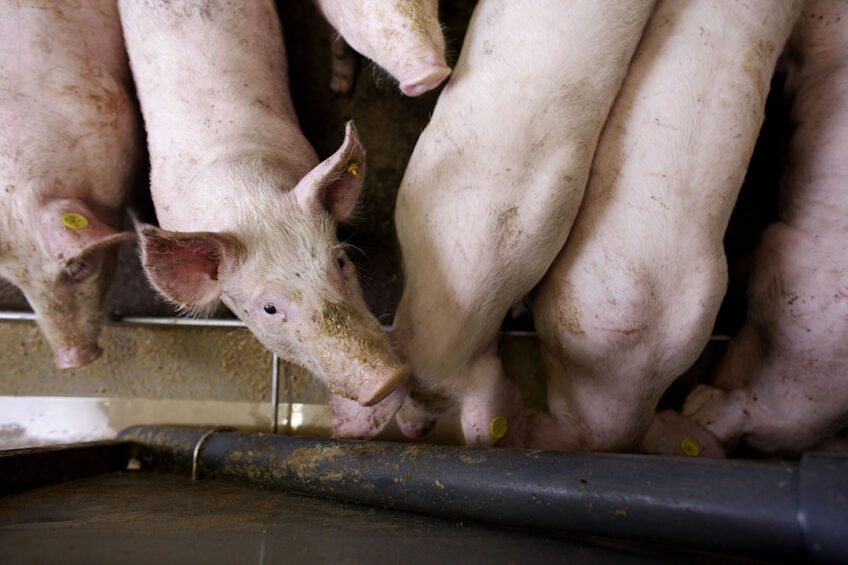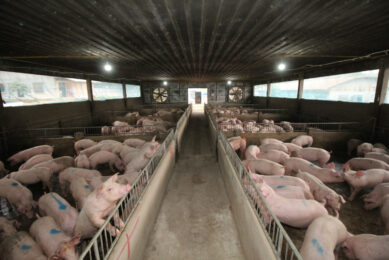ASF UK: Pig producers urged to follow prevention guidelines

Pig producers in the UK have been urged to follow the latest guidance on how to prevent the spread of African Swine Fever (ASF), ensuring that no pigs are fed any food waste.
The ASF virus survives well in uncooked, cured or frozen meat. One key measure therefore is for farmers to ensure they do not feed their herds catering or domestic food waste. This includes from vegetarian and vegan kitchens.
Formulated commercial pig feed
Stewart Houston, pig sector chairman for the Red Tractor farm assurance scheme, said producers should ensure their animals are fed formulated commercial pig feed and fruit and vegetables that have never entered a domestic or commercial kitchen. They shold also never have come into contact with products of animal origin such as meat or dairy.
“You should also avoid leaving food waste in areas where wild boar or feral pigs roam. It is also not recommended to provide any supplementary commercial feed for feral pigs or wild boar, to avoid encouraging them.”
The risk of ASF reaching the UK has increased: if it were to arrive here, it would have a devastating impact on the health or our pig population and the domestic and international trade of pigs and pork
Risk of ASF reaching UK increased
Houston’s comments come as mainland Italy has recently confirmed its first case of the strain, which is currently circulating in Europe, Asia and Central America. “The risk of ASF reaching the UK has increased: if it were to arrive here, it would have a devastating impact on the health or our pig population and the domestic and international trade of pigs and pork.”
Human route highest risk
There are many pathways for the introduction of ASF virus to the UK. These include movement of infected live animals, contaminated equipment or infectious products. But the Government’s Animal and Plant Health Agency (APHA) consider the human route to be the highest risk pathway and the most likely route of entry.
As a result, the risk of ASF infected pork being brought into the UK via people has been risk assessed as “high” even though the overall risk for all pathways is medium.
Raw meat
Authorities in Dover in October uncovered and seized large volumes of raw meat from countries that have had ASF cases. These including Romania, Poland, Moldova and Ukraine. The findings came a month after the government made it illegal to bring pork or pork products weighing over 2kg in the country unless they were produced to the EU’s commercial standards. It followed intense lobbying by the UK’s National Pig Association.
In its latest report on ASF, Defra said there had been instances involving large quantities of “porcine products of animal origin…, some of which appear to be home-slaughtered and arriving in Great Britain from an undisclosed origin as a non-commercial import, with poor levels of biosecurity and food hygiene.”











